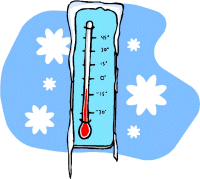Here’s a question from Roxanne in Toronto, ON:
Q: My daughter is a month old now and I’m breastfeeding her – my problem is that I think I have TOO much milk! When she latches on and the milk lets down, she seems to pull away and fuss, as if it’s too much for her. I also notice that her stools are often greenish, and they irritate her skin. What can I do to help with this problem?
A: Yes, it sounds like you have an abundant milk supply, Roxanne, which is great but it can be a bit daunting for a newborn! The cause of the problem is usually a combination of an overactive letdown reflex, and an imbalance of foremilk (the more watery, sweet milk at the beginning of the feeding) to hindmilk (the milk more rich in fat at the end of the feeding). In the course of a feeding, the milk gradually changes from more watery to fat-rich. If a mother with an over-abundant milk supply feeds at both breasts, the baby may receive a higher than normal proportion of foremilk, which can result in the greenish, irritating stools. It may help to offer the baby only one breast at a feeding. One breast will supply all she needs at a feeding, and the ratio of hindmilk will be higher.
Also, you can try positioning the baby so that gravity helps to slow the milk flow rate. The fastest flow rate will be when Mom is sitting up, so try lying on your side, or on your back with your head supported with a pillow (your Cozy Cuddles Nursing Pillow is perfect for this!) and with baby resting on your chest. If the milk sprays with let-down, try catching it with a towel until it slows down, and then latch the baby on. Try to avoid pumping or hand expression – if you do this for comfort, limit it to a few seconds as this will encourage more milk production.
The good thing is that as your baby matures, she will regulate the flow and will become accustomed to your abundant milk supply!
Nancy Lahn RN
Developer of the Cozy Cuddles Nursing Pillow
Originally posted 2016-11-16 13:09:43.

